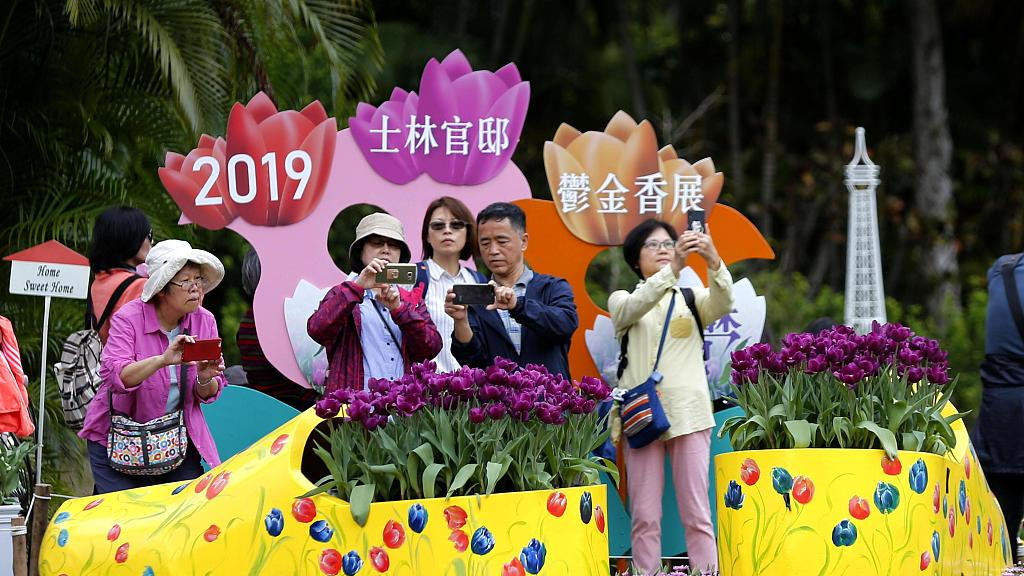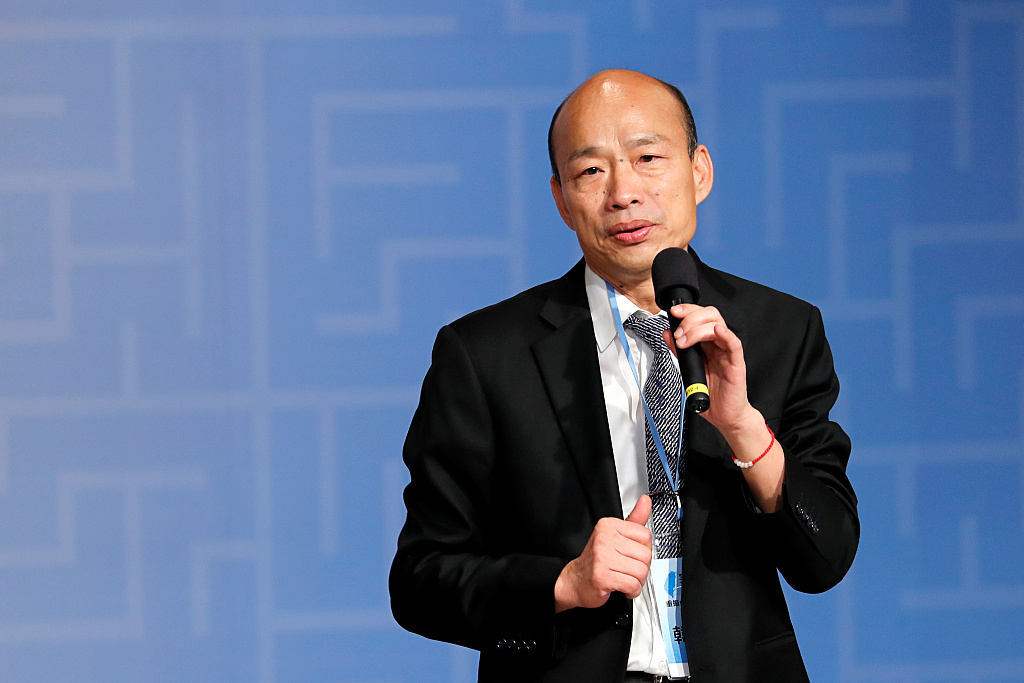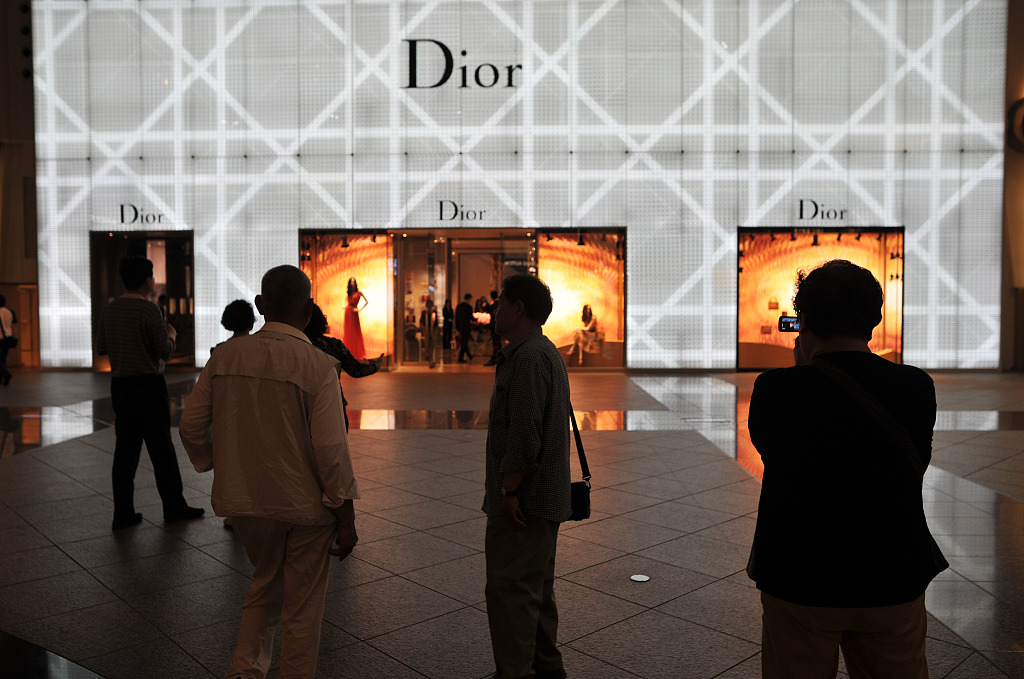

Editor's note: Jiao Shixin is an Associate Professor of the Institute for China studies at the Shanghai Academy of Social Sciences. The article reflects the author's opinions and not necessarily the views of CGTN.
Individual travel visas to Taiwan will be suspended for citizens of 47 cities on the Chinese mainland from August 1, 2019, the Cross-Strait Tourism Exchange Association announced on July 31, shocking people in Taiwan and attracting huge attention on the Chinese mainland.
It is widely believed that the decision is largely due to Taiwan's current political environment and its hostility toward the mainland.
Cross-Strait relations have been deteriorating since Taiwan's Democratic Progressive Party (DPP) took office in 2016. The current Taiwan leader and DPP's candidate for the next leadership elections Tsai Ying-wen has been playing with fire in seeking assistance from outside forces.
Her rival, Han Kuo-yu, KMT's candidate, is pretty contradictory when it comes to his attitude toward the Chinese mainland. He spoke highly of the economic achievements of the Chinese mainland after his mainland visit this year. But he has also shown his contempt for the idea of "One Country, Two Systems. His stance on the "1992 Consensus," is also ambiguous.
After his trip to the U.S., his slogan became “the economy depends on the mainland; national defense depends on the U.S., and technology depends on Japan.”

Kaohsiung Mayor Han Kuo-yu speaks during a forum in Taipei, Taiwan Province, China, April 30, 2019. /VCG Photo
Taiwan's political development is increasingly deviating from the "1992 Consensus" and "one-China policy," which set a great obstacle for strengthening the economic ties between the two sides of the Strait. It also undermines the political foundation for peaceful and stable cross-Strait relations.
People-to-people exchanges have been the link and barometer of the ties. Since 2016, there has been a decline in the number of mainland visitors to Taiwan. According to the Taiwan Affairs Office of the State Council PRC, 2016 and 2017 saw a 16.3 percent and 20.2 percent drop respectively. By 2018, the number of tourists to Taiwan increased slightly by 0.51 percent, which is basically the same.
Given the quota management of the mainland tour groups to Taiwan, which is confirmed by the National Tourism Administration and the relevant departments, the decreased mainland travelers mainly come from the groups. However, the announcement must strike a blow to tourism in Taiwan.
It is predicted that Taiwan will lose at least 700,000 travelers from the mainland in half a year.
Individual mainland travelers are more popular and welcomed in the eyes of the locals, as they tend to stay longer in Taiwan. So, to attract more individual visitors, the Taiwan authorities revised the related regulations in November 2018 and eased restrictions to boost the current ailing economy. Therefore, the recent announcement from the Chinese mainland will undoubtedly be a massive setback to the DPP authorities.
In fact, since 2008, the Chinese mainland has been actively encouraging, supporting and promoting cross-Strait economic and personal exchanges in the hope of cultivating and consolidating the ideas of the "1992 Consensus" and the "one-China policy" through strengthening economic integration.

Individual visitors from Chinese mainland shops in a Dior store in Taipei, Taiwan Province, China, April 30, 2012. /VCG Photo
In June 2008, the two sides reached an agreement to allow Chinese mainland residents to travel to Taiwan by group. It was seen as a gift Beijing offered to the then Taiwan leader Ma Ying-jeou after their tense relations during Chen Shui-bian's era.
In 2009, the number of mainland tourists to Taiwan surged by 235.7 percent. In June 2011, to support Ma Ying-jeou's re-election campaign, individual tourists were included in the agreement as well. In 2012, the number of mainland visitors to Taiwan increased again by 42.56 percent, according to the Taiwan Affairs Office of the State Council PRC. The Chinese mainland cities that allowed people to apply individually for travel visas had also increased to 47. All of this has brought tremendous economic benefits to Taiwan and promoted economic ties between the two sides.
But look where we are now? What's next? It’s all up to Taiwan.
(If you want to contribute and have specific expertise, please contact us at opinions@cgtn.com.)

Copyright © 2018 CGTN. Beijing ICP prepared NO.16065310-3
Copyright © 2018 CGTN. Beijing ICP prepared NO.16065310-3